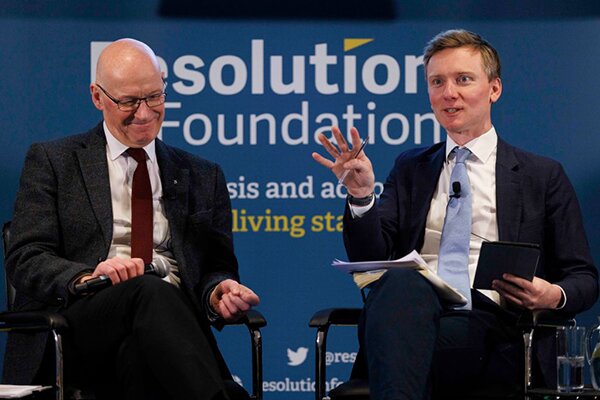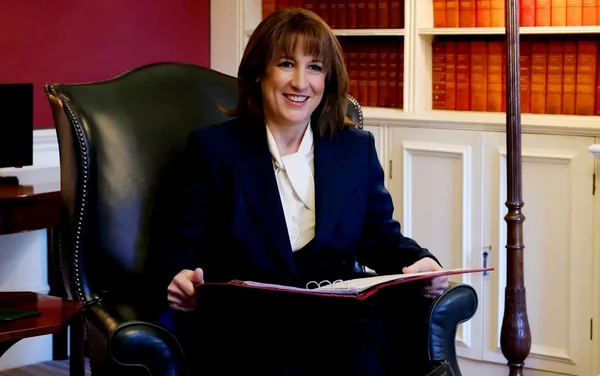Torsten Bell’s Treasury Role Sparks Wealth Tax Debate
Torsten Bell, Labour MP for Swansea West and former chief executive of the Resolution Foundation, has been appointed Parliamentary Secretary to the Treasury and Parliamentary Under-Secretary of State for Pensions. His appointment, confirmed in January 2025, has reignited debate over whether Labour’s upcoming Budget will target wealth more directly than in the past. Bell’s background with the Resolution Foundation a think tank that has long argued Britain’s tax system overburdens wages while under-taxing wealth suggests that major reforms could be under consideration. His colleague, Dan Tomlinson, a former senior economist at the same think tank, was named Exchequer Secretary to the Treasury on September 1, 2025, further consolidating the influence of Resolution Foundation alumni inside government. Together, their presence in the Treasury has fuelled expectations of a renewed focus on wealth taxation, though precise policies remain unconfirmed.
Treasury Appointments and Political Context
Bell’s appointment earlier this year placed him at the heart of fiscal policymaking, with responsibilities spanning Treasury operations and pensions. More recently, he has been given additional duties to help steer preparations for the forthcoming Budget. Tomlinson’s entry into the Treasury strengthens this trend. His previous Treasury experience, coupled with years at the Resolution Foundation between 2015 and 2022, positions him as another advocate for a shift in tax priorities.
While much of the public debate focuses on whether wealth taxation will form part of Rachel Reeves’s second Budget, official confirmation of measures has not yet been provided. Analysts argue that Bell and Tomlinson’s influence raises the likelihood of reform, though critics caution against over-interpreting their past research as guaranteed government policy.
Resolution Foundation’s Policy Influence
Both Bell and Tomlinson are closely associated with the Resolution Foundation, where Bell served as chief executive from 2015 to 2024. During this period, the think tank published reports highlighting structural issues in Britain’s tax system, particularly the disparity between how income and wealth are taxed. Tomlinson contributed to several major studies during his tenure, which stressed that wealth had grown significantly as a share of GDP while revenues from wealth-related taxes had remained comparatively static.
Although some media outlets have suggested that such reports foreshadow Labour’s fiscal agenda, there is no official confirmation that these proposals will be adopted wholesale. Still, the alignment of senior Treasury personnel with the think tank’s perspectives is notable.
Fiscal Pressures and Tax Options
Labour faces immediate challenges in balancing its fiscal programme with campaign commitments. Reeves has pledged to grow the economy while keeping taxes on working people “as low as possible.” Nonetheless, speculation persists that measures targeting property, inheritance, or capital income could be considered to broaden the tax base. If future reforms touch on property or investment income, many households may need clearer guidance on reporting. Our guide on how to file your Self Assessment with Pie explains how to handle income and capital gains correctly.
While earlier reports suggested a £20bn revenue-raising target, this figure has not been independently verified. What is clear is that pressures to fund public services, pensions, and green investment will push the Treasury to explore new options, including potentially rebalancing the mix of income and wealth taxes.

Broader Economic and Social Views
Tomlinson has previously advocated strengthening the role of unions and sectoral wage-setting bodies, echoing broader Labour Party goals to improve worker rights. He has also praised the furlough scheme as an example of effective government support, suggesting that lessons from it could shape future welfare policies. These views indicate that his focus extends beyond taxation, encompassing labour markets and social protection more broadly.
Bell, meanwhile, has been characterised as a proponent of pragmatic yet ambitious reform sometimes described as “radical incrementalism.” While specific remarks attributed to him in some media reports could not be independently verified, his record at the Resolution Foundation underscores his interest in reshaping the tax system.
Resolution Foundation Alumni Across Government
The influence of the Resolution Foundation is not confined to the Treasury. Baroness Minouche Shafik, recently appointed as an economic adviser to Sir Keir Starmer, co-chaired a Foundation report calling for wealth taxes on inheritance, land, and property. Richard Hughes, chair of the Office for Budget Responsibility (OBR), also briefly worked with the Foundation and has called for reforms to the UK’s fiscal framework. Currently, wealth-related revenues come largely through measures like Capital Gains Tax on GOV.UK, which many argue raises far less than equivalent income taxation.
This network of alumni illustrates how the think tank’s ideas have permeated economic policymaking. While critics argue this may risk policy orthodoxy, others suggest it ensures consistent and evidence-based approaches.
Treasury Response
The Treasury has so far declined to provide detailed commentary on individual appointments or potential Budget measures. A spokesperson reiterated that its focus remains on “growing the economy” and “keeping taxes for working people as low as possible.” This leaves the debate largely speculative, with observers awaiting Reeves’s Budget announcement to see whether the anticipated wealth-focused changes materialise.
For individuals navigating the evolving tax system, our Making Tax Digital Self-Assessment guide shows how digital filing is simplifying compliance for taxpayers.

Final Summary
Treasury reshuffle revives wealth tax debate
Torsten Bell’s appointment to the Treasury, alongside Dan Tomlinson’s more recent entry, highlights the growing influence of Resolution Foundation alumni within Labour’s economic team. Both men have long argued that Britain’s tax system leans too heavily on wages and not enough on accumulated wealth, fuelling speculation that the forthcoming Budget could reflect this thinking. While some forecasts of specific revenue targets and policy proposals remain unverified, the direction of debate is clear: wealth taxation is moving closer to the political mainstream. The challenge for Reeves and her team will be reconciling fiscal pressures with political promises to protect working households, ensuring reforms are seen as fair, sustainable, and credible.










